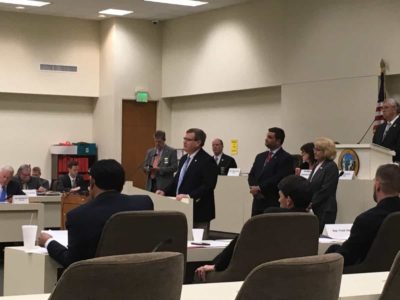A Wake County Superior Court Judge extended a nearly $730 million judgment against the state today for failing to give money received from civil penalties to school districts.
A 2008 court decision said the state owed the public schools almost $750 million in civil penalties collected by state agencies. Since the decision, the state’s public schools have only received about $18 million.
The crux of the issue revolves around the time period between 1996 and 2005, when the state held back money that the courts later said was owed to the state’s public schools under the state constitution. While schools have been receiving the money they’re owed since then, districts are still trying to collect on money owed prior to 2005.
Back in August, The North Carolina School Boards Association (NCSBA) and other plaintiffs refiled the lawsuit because the original judgment was only valid for 10 years and a second lawsuit had to be filed to keep it alive.
“We are pleased that the court extended the judgment against the state,” said Billy Griffin, president of the NCSBA and chairman of the Board of Education in Jones County, in a press release. “These funds are vitally important to public schools across the state because there is certainly no shortage of needs for technology.”
The money from the judgment is meant to be spent on technology, because that is what it was originally meant to be used for.
Historically, the General Assembly has taken no action to repay the money from the judgment, but that appears to be changing. A provision in the House construction bond bill filed by Speaker Tim Moore, R-Cleveland, addresses the issue. It says that funds used from the construction bond for school technology shall be credit against that $730 million judgment.
“NCSBA continues to stress to the General Assembly the need to develop a payment structure to return the funds due to the public school students of this state for technology. We are encouraged by the inclusion in Speaker Moore’s bond proposal that any funds used for technology will be credited against the judgment. This is the first of several steps necessary to address the judgment for several years,” said Leanne Winner, NCSBA director of governmental relations, in a press release.



